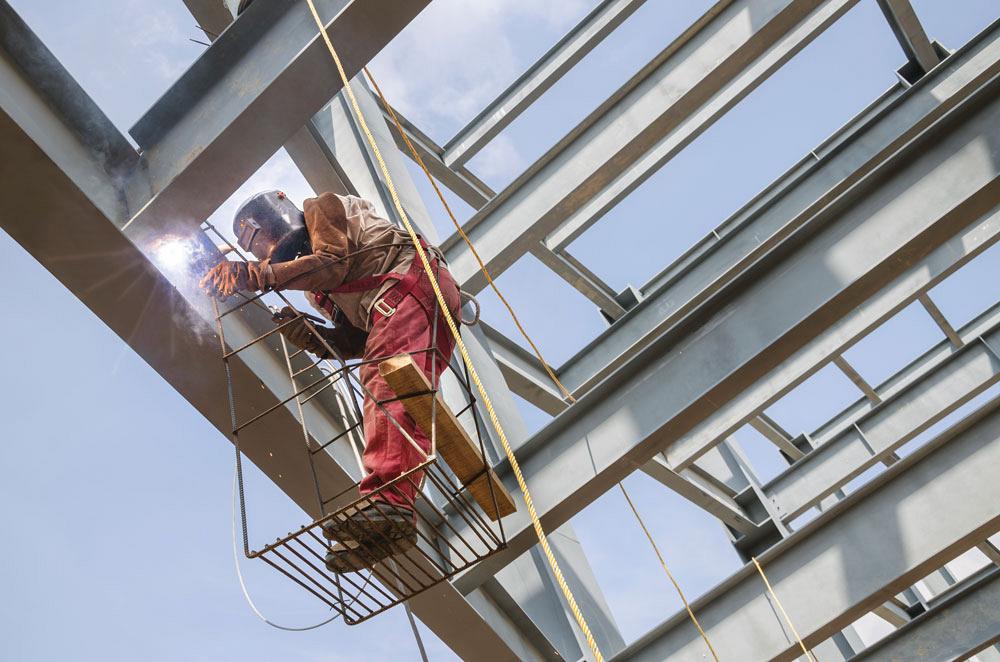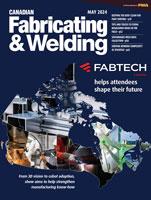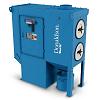Communications Manager, Government Relations
- FMA
- The Fabricator
- FABTECH
- Canadian Metalworking
Building bridges and relationships at CWB
How CWB Group is working to stay connected to building officials and other authorities
- By Aysha Raad
- November 22, 2022
The policy environment in Canada, and the world at large, has changed dramatically over the past two years as governments have responded to the impact of the COVID-19 pandemic with business shutdowns, high inflation, unpredictable job markets, unprecedented government deficits, and shifting demands from the public and policymakers alike.
COVID-19 also exacerbated the labour shortage in the skilled trades, which already was a concern before the pandemic. Many people in the sector who were near retirement chose to do so early, leaving many vacancies with not enough younger people in the trades to fill them.
Addressing the labour shortage in the welding sector should be a priority because it is essential to Canadian society. However, a welder’s work oftentimes is done behind the scenes. Think about the bridges you drive on, the multi-level condos and office buildings you live and work in, the vehicles you drive, and the critical pieces of infrastructure that deliver the energy we use everyday — all have welded components. If these welds are not held to the highest standards, the consequences could be dire.
The welding industry, particularly through the Canadian Welding Bureau (CWB Group), is always assessing how it can support the next generation of welders. Training programs need to support groups that have been underrepresented in the past, including women, newcomers to Canada, and Indigenous communities, among others. It also is important to advance welding innovation to ensure it continues to have a role in new industries such as electric vehicles, and renewable energy development such as wind and solar energy.
An important part of the CWB Group’s role is engaging stakeholders in the public, private, and non-profit sectors to build partnerships and advocate on behalf of the welding industry. Without those important relationships, policymakers and regulators will not necessarily understand the challenges facing the sector today, and what is on the horizon in the future.
A critical part of the public sector at the municipal level are building officials, who are a key partner in overseeing and enforcing the requirements of the national and provincial building codes as they relate to the welded fabrication of steel structures. Companies that fabricate welded structural steel for both buildings and bridges must be certified by the CWB Group.
It is important that the CWB Group expand its engagement with building officials and other authorities and regulators to raise awareness of the value of having qualified welders and certified welding companies to inspect welding work. Ensuring that welded structures meet the highest standards is essential to maintaining public safety and advancing welded building integrity.
Many Canadian provinces have their own associations for building officials. Recently, the CWB’s Public Safety group participated in the Ontario Building Officials Association (OBOA) Annual Meeting to engage with this key stakeholder group. When looking at their strategic priorities for 2022 to 2024, it is easy to see the opportunities for synergies between CWB and the OBOA: engaging with government agencies, strengthening sector relationships and partnerships, investing in code development and standardization, and supporting sector sustainability and growth.
As OBOA President Joyanne Beckett noted during the annual meeting, COVID-19 halted many industries and projects, but construction was an activity that kept moving ahead. This meant building officials (and welding inspectors) had to keep up with inspections to ensure the quality of the buildings and the safety of the public.
The labour shortage also exists beyond the welding sector. During the OBOA conference, Hon. Jill Dunlop, Ontario’s Minister of Colleges and Universities, spoke on the issue: “People choose to enter the skilled trades for a variety of reasons and the benefits of this pathway are very clear. Right now, Ontario is facing a growing labour shortage in the skilled trades and many in the sector are close to retirement. Given the province’s ambitious plan to rebuild, we want to make sure we have a strong skilled trades workforce ready to step in.
“Ontario offers many skilled trades programs in colleges across the province. Enrolling in a college program offers Ontarians a chance to learn from experienced tradespeople and can benefit from a network of industry connections that can lead to apprenticeships and jobs.”
Through the CWB Foundation, there are many training opportunities to learn welding or advance existing skills. Furthermore, the CWB Group connects with a variety of organizations to offer specific programming such as the Welder Competency and Credential Assessment (WCCA). The WCCA provides internationally trained welders with a better understanding of the pathway to certification in Canada; how their skills compare to Canadian standards through the competency assessment platform; and how to upgrade their knowledge and skills through access to numerous training programs, settlement services, financial support, and career websites. The goal is to increase pre-arrival preparedness for integration into the welding industry. Programs and initiatives like this will go a long way to grow and strengthen Canada’s welding sector, while also supporting important populations such as newcomers to Canada.
The CWB Group is committed to continuing building relationships with key stakeholders including building officials, schools, companies, and non-profit organizations to advance the welding sector. By creating strong partnerships, we can address the labour shortages and ensure the industry is armed with the skills and resources to meet future needs.
Aysha Raad is communications manager, government relations at CWB Group, 8260 Parkhill Drive, Milton, Ont. L9T 5V7, 800-844-6790, aysha.raad@cwbgroup.org, www.cwbgroup.org.
subscribe now


Keep up to date with the latest news, events, and technology for all things metal from our pair of monthly magazines written specifically for Canadian manufacturers!
Start Your Free SubscriptionAbout the Author
- Industry Events
Automate 2024
- May 6 - 9, 2024
- Chicago, IL
ANCA Open House
- May 7 - 8, 2024
- Wixom, MI
17th annual Joint Open House
- May 8 - 9, 2024
- Oakville and Mississauga, ON Canada
MME Saskatoon
- May 28, 2024
- Saskatoon, SK Canada
CME's Health & Safety Symposium for Manufacturers
- May 29, 2024
- Mississauga, ON Canada





















